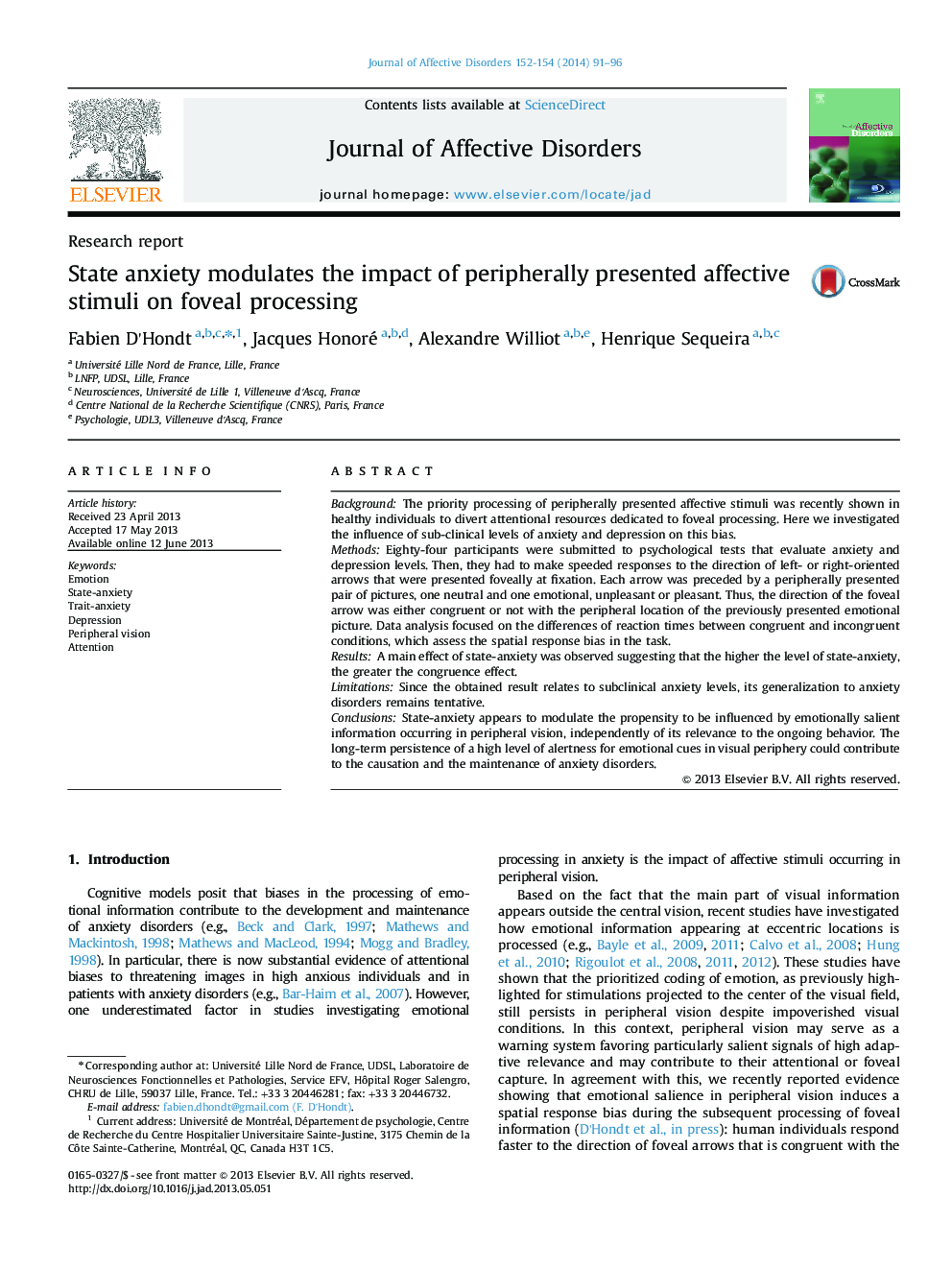| کد مقاله | کد نشریه | سال انتشار | مقاله انگلیسی | نسخه تمام متن |
|---|---|---|---|---|
| 6233107 | 1608171 | 2014 | 6 صفحه PDF | دانلود رایگان |
BackgroundThe priority processing of peripherally presented affective stimuli was recently shown in healthy individuals to divert attentional resources dedicated to foveal processing. Here we investigated the influence of sub-clinical levels of anxiety and depression on this bias.MethodsEighty-four participants were submitted to psychological tests that evaluate anxiety and depression levels. Then, they had to make speeded responses to the direction of left- or right-oriented arrows that were presented foveally at fixation. Each arrow was preceded by a peripherally presented pair of pictures, one neutral and one emotional, unpleasant or pleasant. Thus, the direction of the foveal arrow was either congruent or not with the peripheral location of the previously presented emotional picture. Data analysis focused on the differences of reaction times between congruent and incongruent conditions, which assess the spatial response bias in the task.ResultsA main effect of state-anxiety was observed suggesting that the higher the level of state-anxiety, the greater the congruence effect.LimitationsSince the obtained result relates to subclinical anxiety levels, its generalization to anxiety disorders remains tentative.ConclusionsState-anxiety appears to modulate the propensity to be influenced by emotionally salient information occurring in peripheral vision, independently of its relevance to the ongoing behavior. The long-term persistence of a high level of alertness for emotional cues in visual periphery could contribute to the causation and the maintenance of anxiety disorders.
Journal: Journal of Affective Disorders - Volumes 152â154, January 2014, Pages 91-96
